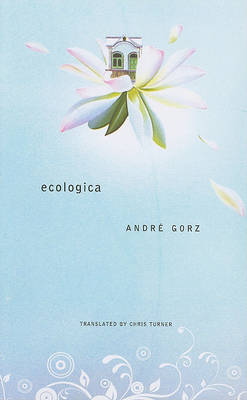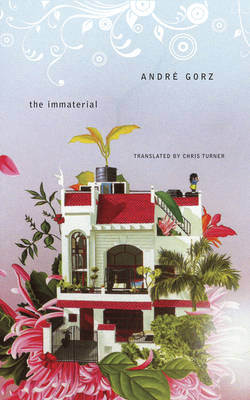The French List
2 total works
Writing in 2007, French social philosopher Andre Gorz (1923-2007) was remarkably prophetic, foretelling the international economic meltdown of 2008: 'The real economy is becoming an appendage of the speculative bubbles sustained by the finance industry - until that inevitable point when the bubbles burst, leading to serial bank crashes and threatening the global system of credit with collapse and the real economy with a severe, prolonged depression'. This prescient article is collected in "Ecologica" alongside many of Gorz's final writings and interviews, which together offer a practical and often pathbreaking set of solutions to our current economic and political problems. In his writings Gorz condemns the speculative global economic system and anatomizes its terminal crisis. Advocating an exit from capitalism through the self-limitation of needs and the networked use of the latest technologies, he outlines a practical, democratically based solution to our current predicament. Compiled by Gorz himself, "Ecologica" is intended as a final distillation of his work and thought, a guide to the survival of our planet.
It is a work of political, rather than scientific ecology - Gorz argues that the key to planetary survival is not a surrender to environmental experts and eco-technocrats, but a switch to non-consumerist modes of living that would amount to a type of cultural revolution.
It is a work of political, rather than scientific ecology - Gorz argues that the key to planetary survival is not a surrender to environmental experts and eco-technocrats, but a switch to non-consumerist modes of living that would amount to a type of cultural revolution.
In "The Immaterial", French social philosopher Andre Gorz argues, in his finely tuned and polemical style, that the economic boom that accelerated in the 1990s and crashed so spectacularly in 2008 was based largely on an immaterial consumption of symbols and ideas, as capitalism tried to overcome the crisis of the formally industrial regime by throwing itself into a new, so-called knowledge economy. In this, the last full-length philosophical work Gorz completed before his death, he argues instead for the creation of a true knowledge economy. This economy would be based on zero-cost exchange and pooled resources, and knowledge would be treated as humanity's common property. Currently, in order to exploit knowledge and turn it into capital, the capitalist enterprise privatizes specialized knowledge and claims ownership through private licenses and copyright. But as Gorz shows, the traditional foundations of such capitalist economics have begun to crumble because of the immaterial nature of this new form of product, which makes it almost impossible to measure in monetary terms. The knowledge economy, Gorz declares, is the crisis of capitalism.
Thought-provoking and divisive, "The Immaterial" is the perfect book for our time, as we begin to reimagine the structures of our economic system in order to rebuild and move forward.
Thought-provoking and divisive, "The Immaterial" is the perfect book for our time, as we begin to reimagine the structures of our economic system in order to rebuild and move forward.

